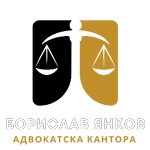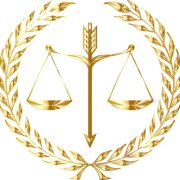Best Faith-Based Law Lawyers in Bulgaria
Share your needs with us, get contacted by law firms.
Free. Takes 2 min.
Or refine your search by selecting a city:
List of the best lawyers in Bulgaria
About Faith-Based Law in Bulgaria
Faith-Based Law in Bulgaria pertains to the legal considerations and frameworks associated with religious freedom, religious institutions, and the intersection of faith and government policy. The country recognizes a range of religious traditions, with significant historical ties to Christianity through the Eastern Orthodox Church. As a member of the European Union, Bulgaria aims to uphold international standards regarding religious freedoms while remaining aligned with its cultural and social heritage. Faith-Based Law encompasses various areas, including the formal recognition of religious organizations, education, marriage, and employment as influenced by religious practices.
Why You May Need a Lawyer
Individuals or organizations may require legal help in Faith-Based Law for various reasons. Common situations include:
- Establishing or formally recognizing a religious organization.
- Navigating conflicts between religious practices and secular laws or regulations.
- Handling matters related to religious marriages or faith-based family laws.
- Seeking exemptions or accommodations for religious beliefs in workplaces or schools.
- Resolving disputes between religious entities and governmental bodies.
A lawyer specializing in Faith-Based Law can provide guidance, represent clients in legal proceedings, and ensure compliance with both local and international legal standards.
Local Laws Overview
Bulgaria has a constitutional commitment to the freedom of religion, providing the legal framework within which faith-based issues are considered. Key aspects include:
- The Constitution of Bulgaria guarantees freedom of religion, allowing individuals and communities to practice their faith without interference.
- Religious organizations must register with the government to gain legal status, which involves specific criteria and procedures.
- State education policy must accommodate religious diversity, often addressed through optional religious instruction in schools.
- Family law allows for certain religious customs to be observed, especially in terms of marriage ceremonies and rites.
- Employment law prohibits discrimination based on religion but balances this with other rights and freedoms.
Frequently Asked Questions
What is the process to legally register a religious organization in Bulgaria?
To register a religious organization, you must apply to the Directorate of Religious Affairs with specific documentation, including the organization's statutes, proof of membership, and other requirements.
Can a religious organization own property in Bulgaria?
Yes, once a religious organization is formally recognized and registered, it can own and administer property, enter into contracts, and perform other legal acts.
Are religious marriages legally recognized in Bulgaria?
Yes, religious marriages are recognized if they meet criteria outlined by civil law, which typically involves a civil marriage registration alongside the religious ceremony.
What rights do children have in religious education?
Children have the right to receive religious education, but it is usually optional and must be in compliance with national education laws and parental consent.
Can employees request religious accommodations in their workplace?
Yes, employees can request accommodations for religious practices, but these requests must be reasonable and not infringe on the rights of others or significantly disrupt business operations.
What are the grounds for legally terminating a religious organization?
Grounds for termination can include financial irregularities, failure to adhere to registered statutes, or engagement in activities contrary to public order and safety.
How does Bulgarian law address conversions between faiths?
Individuals in Bulgaria are free to convert to another faith at any time, and laws protect against coercion in religious conversions.
Are there any restrictions on religious dress in Bulgaria?
There are rare restrictions on religious dress, primarily in contexts where security or identification is a concern, such as in government identification photos.
Can a foreign religious organization operate in Bulgaria?
Foreign religious organizations can operate in Bulgaria, provided they register and comply with national laws governing religious entities.
What is the role of the Directorate of Religious Affairs?
The Directorate of Religious Affairs oversees religious organizations' registration and compliance processes, mediates disputes, and ensures adherence to religious freedom laws.
Additional Resources
For further information or assistance, consider reaching out to the following organizations:
- The Directorate of Religious Affairs - Regulatory body for religious organizations.
- Bulgarian Helsinki Committee - Provides resources on religious freedoms and human rights.
- Bulgarian Orthodox Church - Primary religious institution with historical significance.
- Local legal aid centers - Provide guidance and legal services for those in need.
Next Steps
If you require legal assistance in Faith-Based Law, consider taking the following steps:
- Research potential lawyers or legal firms specializing in Faith-Based Law in Bulgaria.
- Prepare any relevant documents or information pertinent to your legal needs.
- Schedule consultations to discuss your case with a legal professional.
- Discuss fees, timelines, and legal strategies with your chosen lawyer.
- Engage with local or international support organizations if your issue involves cross-border elements.
By taking these steps, you can ensure that your legal interests are protected and that you are equipped to navigate any faith-based legal challenges effectively.
Lawzana helps you find the best lawyers and law firms in Bulgaria through a curated and pre-screened list of qualified legal professionals. Our platform offers rankings and detailed profiles of attorneys and law firms, allowing you to compare based on practice areas, including Faith-Based Law, experience, and client feedback.
Each profile includes a description of the firm's areas of practice, client reviews, team members and partners, year of establishment, spoken languages, office locations, contact information, social media presence, and any published articles or resources. Most firms on our platform speak English and are experienced in both local and international legal matters.
Get a quote from top-rated law firms in Bulgaria — quickly, securely, and without unnecessary hassle.
Disclaimer:
The information provided on this page is for general informational purposes only and does not constitute legal advice. While we strive to ensure the accuracy and relevance of the content, legal information may change over time, and interpretations of the law can vary. You should always consult with a qualified legal professional for advice specific to your situation.
We disclaim all liability for actions taken or not taken based on the content of this page. If you believe any information is incorrect or outdated, please contact us, and we will review and update it where appropriate.
Browse faith-based law law firms by city in Bulgaria
Refine your search by selecting a city.















